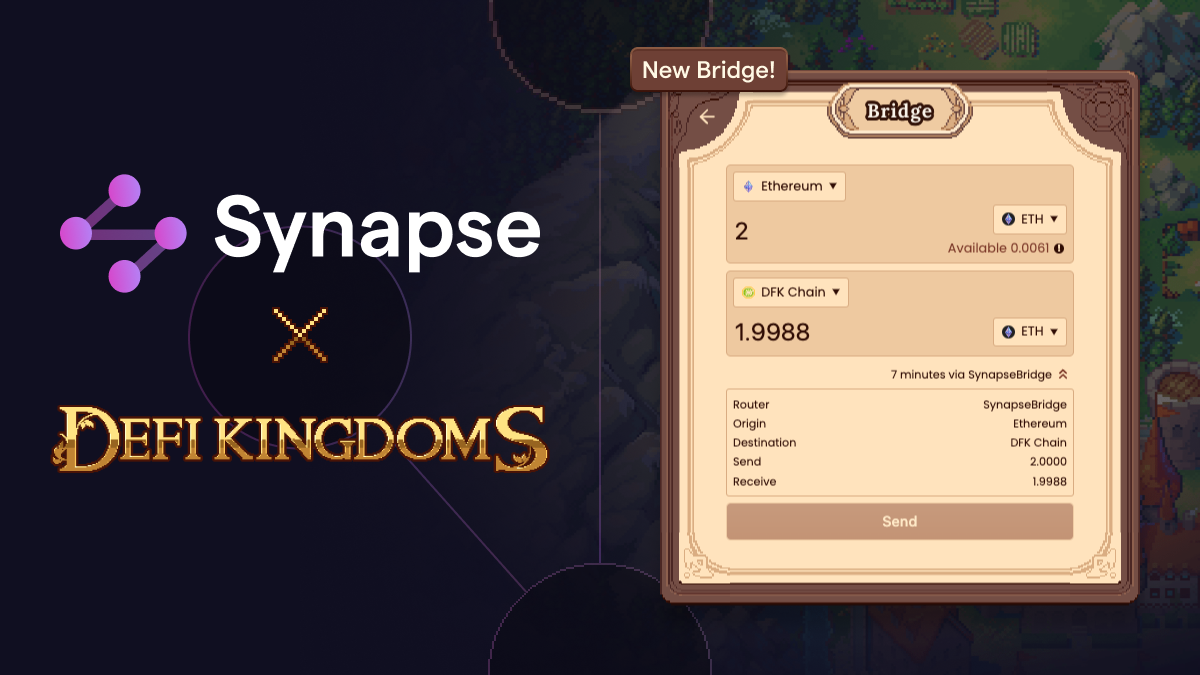CCCam HD Insights
Stay updated with the latest in streaming and tech.
Why Crypto Game Interoperability is the Secret Sauce That Gamers Didn't Know They Needed
Discover how crypto game interoperability can transform your gaming experience and unlock endless possibilities for gamers everywhere!
The Untapped Potential of Blockchain: How Interoperability Transforms Crypto Gaming
The rise of blockchain technology has introduced new paradigms in various industries, but its real potential is still largely untapped, especially in the realm of crypto gaming. Interoperability among different blockchain networks enables seamless transactions and interactions across diverse gaming platforms, creating a more unified and engaging experience for players. By allowing gamers to move assets, achievements, and even characters between games, interoperability breaks down the silos that have traditionally separated various gaming ecosystems. This not only enhances player engagement but also taps into a larger marketplace, allowing developers to attract players from different backgrounds and preferences.
Moreover, the transformative power of interoperability extends beyond mere asset transfer; it fosters a vibrant ecosystem where game developers can collaborate and innovate without the limitations imposed by proprietary technologies. For instance, players can participate in a variety of economy models that utilize their digital wallets across multiple games, effectively maximizing the value of their tokens and in-game assets. As the demand for immersive and interconnected gaming experiences grows, the focus on interoperability will become a decisive factor for success in the crypto gaming landscape, driving both user retention and revenue growth.

Counter-Strike is a popular tactical first-person shooter that has captivated gamers around the world. With its emphasis on teamwork and strategy, players choose to fight as terrorists or counter-terrorists in various game modes. For those looking to enhance their gaming experience, using a bc.game promo code can provide exciting bonuses and rewards.
Unlocking New Worlds: Why Gamers Should Care About Crypto Game Interoperability
Unlocking New Worlds: As the gaming landscape evolves, the integration of crypto game interoperability is becoming increasingly significant. This innovation allows players to traverse multiple gaming ecosystems seamlessly, carrying their assets, avatars, and experiences from one game to another. Imagine being able to take your in-game items from a fantasy RPG and using them in a racing game or a virtual world. This potential for connection among various games not only enhances the gaming experience but also opens up new avenues for creativity and engagement.
Furthermore, the benefits of crypto game interoperability extend beyond individual players. Game developers embracing this trend can foster a more vibrant and sustainable gaming community. By allowing different games to share resources and assets, developers can reduce production costs and encourage collaboration, leading to innovative gameplay experiences.
As gamers, participating in this evolution means not just enjoying new features but also contributing to a future where the gaming universe is truly interconnected.
Interoperability in Crypto Games: What It Means for Players and the Future of Gaming
Interoperability in Crypto Games refers to the ability of different gaming platforms and ecosystems to communicate and share assets seamlessly. For players, this means that digital items, characters, and currencies acquired in one game can be used in another, enhancing the overall experience and value of their investments. This shift towards a more connected gaming environment presents a significant change from traditional gaming, where items are often locked within one game. As players engage in multiple games, the potential for a unified experience encourages them to invest in crypto games, knowing their efforts are more meaningful and lasting.
The future of gaming is set to be revolutionized by interoperable blockchain technology that allows for crossover experiences. Imagine a scenario where a player can use their rare NFT sword from one game to unlock special features in another, creating a richer narrative and gameplay dynamics. This not only increases player engagement but also fosters a competitive market where developers must innovate to attract users. As more games embrace interoperability, we will likely see the emergence of a decentralized gaming ecosystem that not only empowers players but also challenges the traditional norms of game development.